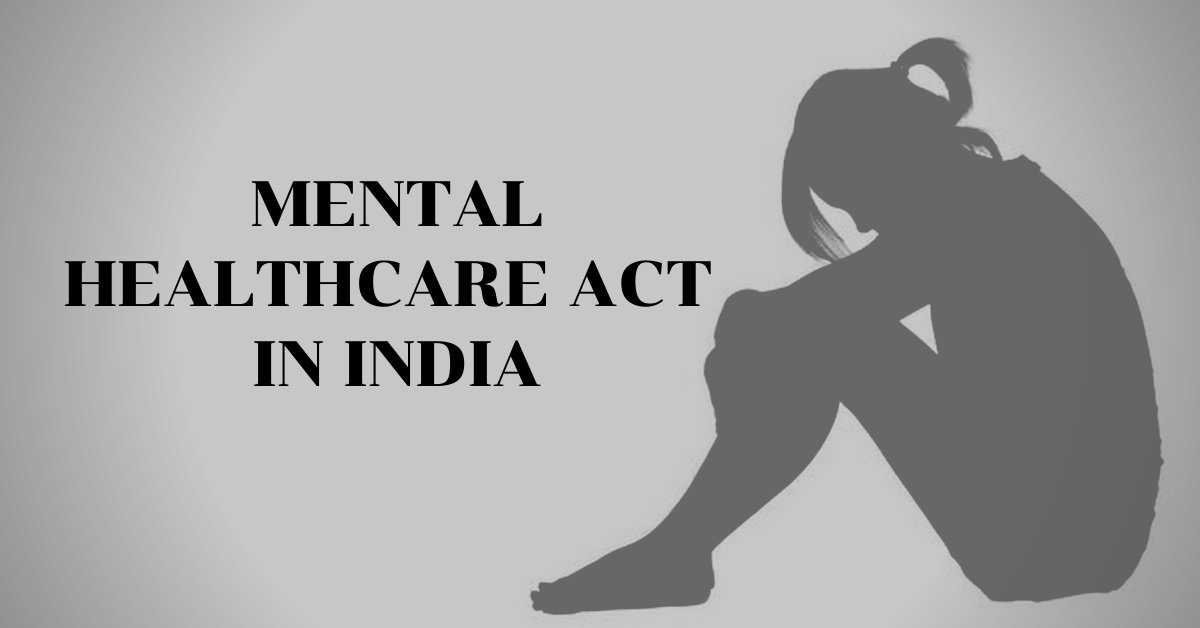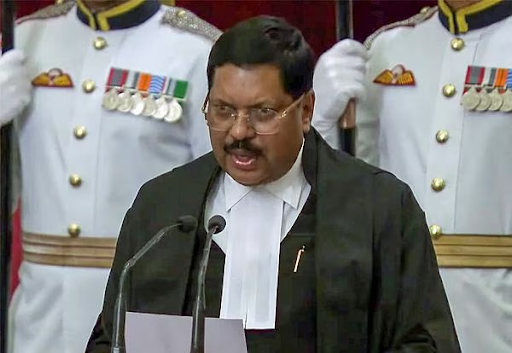Description

Copyright infringement not intended
In News
- The National Human Rights Commission (NHRC) in a recently released report raised serious concern over the “inhuman and deplorable” condition of all 46 government mental healthcare institutions across the country.
- The report mentions that the government facilities are “illegally” keeping patients long after their recovery, in what is an “infringement of the human rights of mentally ill patients”.
- NHRC reports were made after the study team visited all operational government facilities, to assess the implementation of the Mental Healthcare Act, 2017 (MHA).
.jpeg)
Mental Healthcare Act, 2017
- Mental Health Care Act was passed in 2017 and came into force in May 2018.
- This Act superseded the previously existing Mental Health Act of 1987.
- Indian Parliament passed the act to provide mental healthcare and services for persons with mental illness and to protect, promote and fulfil the rights of such persons during the delivery of mental healthcare and services and for matters connected.
- The Act states that mental illness is determined "in accordance with nationally and internationally accepted medical standards as may be notified by the Central Government.
- The Act aims at decriminalizing the attempt to Commit Suicide by seeking to ensure that the individuals who have attempted suicide are offered opportunities for rehabilitation from the government as opposed to being tried or punished for the attempt.
- The Act seeks to fulfil India's international obligation under the Convention on Rights of Persons with Disabilities and its Optional Protocol.
- The Act aims to safeguard the rights of people with mental illness, along with access to healthcare and treatment without discrimination from the government.
- Additionally, insurers are now bound to make provisions for medical insurance for the treatment of mental illness on the same basis as is available for the treatment of physical ailments.
- The Act includes provisions for the registration of mental health-related institutions and for the regulation of the sector.
- These measures include the necessity of setting up mental health establishments across the country to ensure that no person with mental illness will have to travel far for treatment, as well as the creation of a mental health review board which will act as a regulatory body.
- The Act has restricted the usage of Electroconvulsive therapy (ECT) to be used only in cases of emergency, along with muscle relaxants and anaesthesia.
- Further, ECT has additionally been prohibited to be used as a viable therapy for minors.
- The responsibilities of other agencies such as the police concerning people with mental illness have been outlined in the Act.
- The Act acknowledged that external factors; such as income, social status, and education — impact mental wellbeing, and therefore, recovery needs a psychiatric as well as a social input.
- Under the Act, the government was made responsible for creating opportunities to access less restrictive options for community living — such as halfway homes, sheltered accommodations, rehab homes, and supported accommodations.
- The Act also discourages using physical restraints (such as chaining), and unmodified electroconvulsive therapy (ECT) and pushes for the right to hygiene, sanitation, food, recreation, privacy, and infrastructure.
Evaluation of the Act
- The Act safeguards the rights of people in mental healthcare establishments, but enforcement challenges remain.
- Almost 36.25% of residential service users at state psychiatric facilities were found to be living for one year or more in these facilities.
- Under the Act, all States are required to establish a State Mental Health Authority and Mental Health Review Boards (MHRBs); that can further draft standards for mental healthcare institutes, oversee their functioning and ensure they comply with the Act.
- In the Majority of States, these bodies are yet to be established or remain defunct.
- The Act takes on a human rights lens by shifting the obligation of care onto different stakeholders — including caregivers, government institutions, police officials, and mental health practitioners.
- Poor budgetary allocation and utilization of funds create a scenario where shelter homes remain underequipped, establishments are understaffed, and professionals and service providers are not adequately trained to deliver proper healthcare.

Important Initiatives taken to improve Mental Health:
- National Mental Health Programme (NMHP): India launched NMHP in 1982 to improve the status of mental health in India. It has three important components. Such as Treatment of the Mentally ill, Rehabilitation, Prevention and promotion of positive mental health.
- Central and State Mental Health Authorities: The Act established these authorities for the regulation & coordination of mental health services in India.
- Right to make an Advance Directive: Under this, every person can state how to be treated or not be treated for the illness during a future mental health situation.
- Right to appoint a Nominated Representative: Every person also has the right to appoint a nominee to take, on his/her behalf, all health-related decisions.
- Changes in Section 309 of the Indian Penal Code: This section of IPC criminalized the attempt to commit suicide. After the enactment of the Act, a person who attempts to commit suicide will be presumed as a person “suffering from severe stress’’. The person will also not be subject to any investigation or prosecution.
- KIRAN helpline: It is a 24/7 toll-free helpline launched by the Ministry of Social Justice and Empowerment. This helpline provides support to people facing anxiety, stress, depression, suicidal thoughts, and other mental health concerns.
- Manodarpan Initiative: It is an initiative launched by the Ministry of Education under Atmanirbhar Bharat Abhiyan. The initiative provides psychosocial support to students, family members, and teachers for their mental health and well-being during the times of Covid-19.
- RAAH app: It is a mobile application that provides free information to the public on mental healthcare professionals and mental healthcare centres. The National Institute of Mental Health and Neuro-Sciences (NIMHANS) has compiled a one-stop source online mental health care directory.
- MANAS App: MANAS stands for Mental Health and Normalcy Augmentation System. It is a comprehensive, scalable, and national digital well-being platform. It has been developed to promote the mental well-being of Indian citizens.
Way Forward:
- Urgent investment in child and adolescent mental health across sectors, not just in health, to support a whole-of-society approach to prevention, promotion and care.
- Urgent investment in strategies to promote good mental health including the prevention of gender-based and other forms of violence
- Integrating interventions across health, education and social protection sectors - including parenting programmes and ensuring schools support mental health
- Breaking the silence surrounding mental illness, through addressing stigma and promoting a better understanding of mental health.
Must Read: https://www.iasgyan.in/blogs/mental-health-in-india


https://epaper.thehindu.com/ccidist-ws/th/th_delhi/issues/25283/OPS/GQ6ASP9VB.1.png?cropFromPage=true















